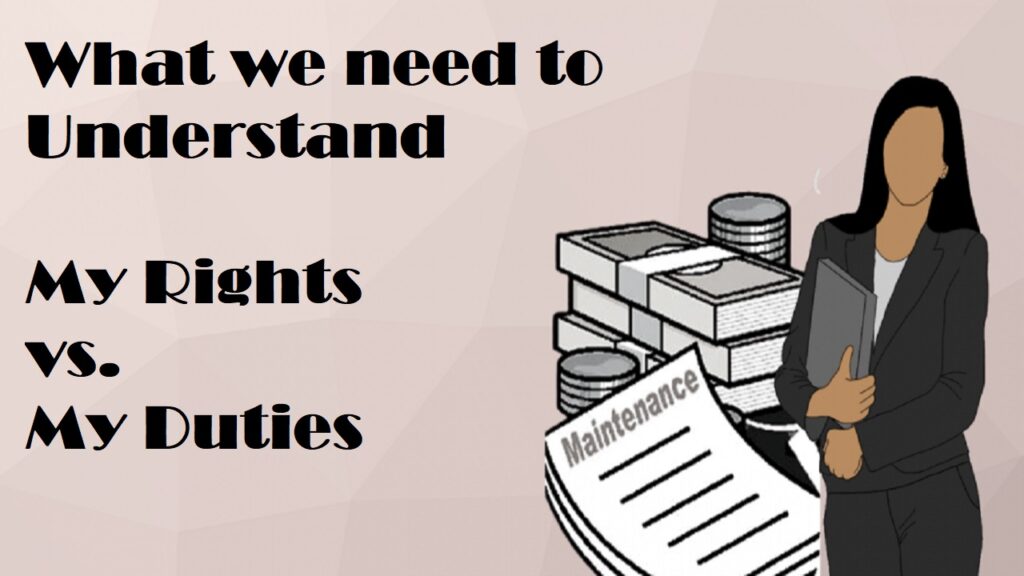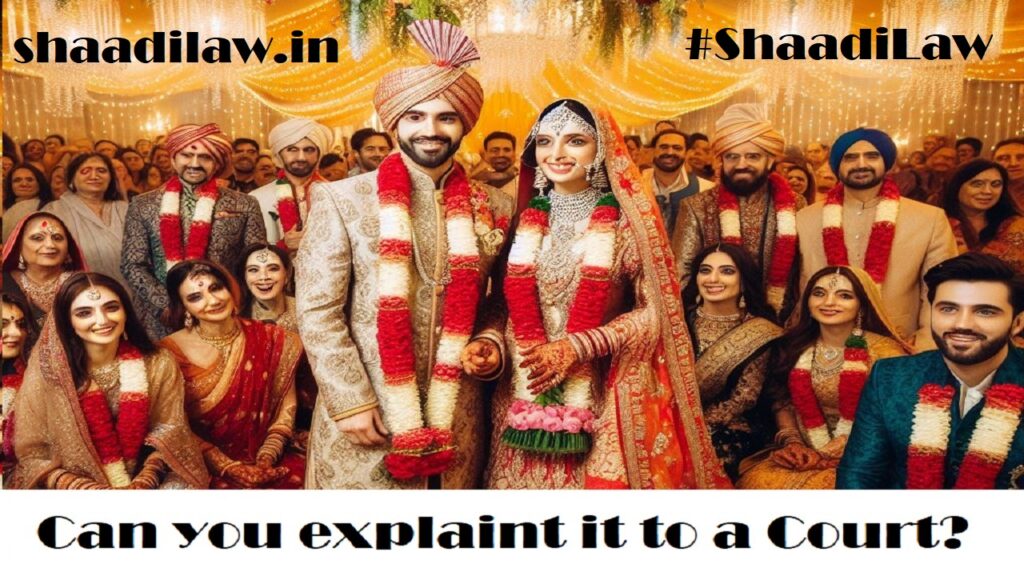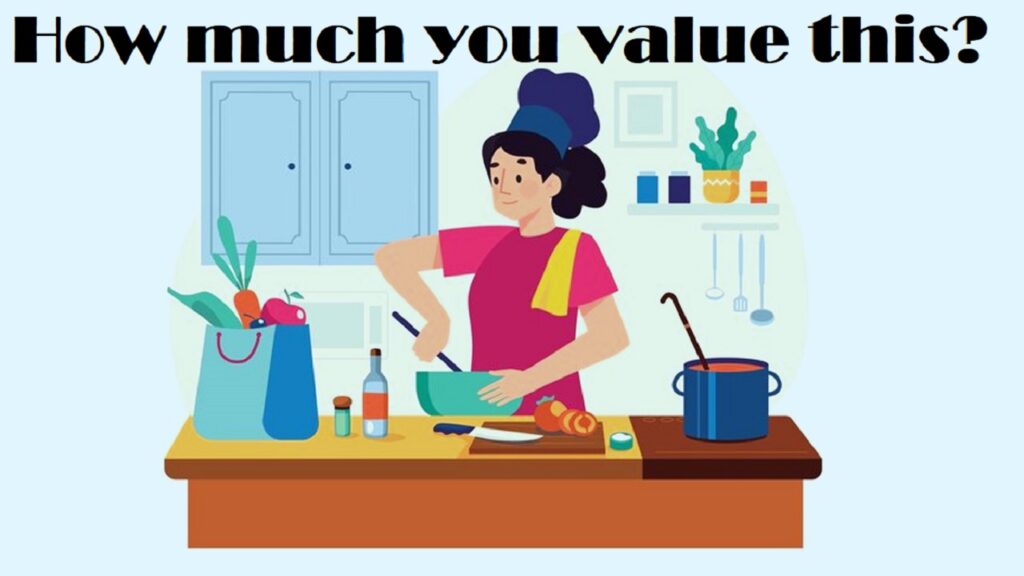Introduction
Before we delve into this topic, I want to clarify that our discussion does not revolve around being a victim of any legal abuse. It’s crucial to approach the subject with an open mind and not perceive the legal system as a predator or a hunting ground. The purpose of the law is not to cater to individual comfort but to prioritize the well-being of society as a whole.
To ensure a comprehensive discussion, it is essential that we both have a clear understanding of the concept of marriage. Varying perspectives can indeed lead to differing viewpoints. Therefore, I encourage you to share your understanding of marriage, allowing us to establish a common foundation for our conversation. By doing so, we can explore the topic more effectively and consider a range of perspectives.
As the author of this article, I have chosen to divide this topic into multiple parts. This division allows for a more focused exploration of each aspect. I encourage you to approach this article with patience and avoid reading it all at once. Instead, take the time to thoroughly engage with each part, considering the references provided. Take at least a day to reflect upon and form your perspective before moving on to the next section. This approach will enable a more thoughtful and comprehensive understanding of the topic.
Why you do not understand this law in its rightful meaning?
In my experience of working with individuals affected by this law, particularly husbands, I have witnessed the profound impact and complexity it carries. These individuals often experience intense emotions such as anger, disappointment, and distress. These emotions can create significant obstacles to impartially understanding the law.
Furthermore, these circumstances often lead to impaired reasoning. When the mind is stressed or depressed, it tends to seek immediate solutions, and individuals may focus solely on finding what benefits them personally. However, studying only “what helps me” without understanding the broader context of “what binds me” is an incomplete form of education. A person with incomplete knowledge is very dangerous.
Now, let’s address the underlying concern. Overconfidence in one’s ability to understand the law can be problematic. Simply reading the bare provisions of the law is akin to reading the Shrimad Bhagavad Gita without knowledge of the Mahabharata. Merely examining the surface-level provisions of the law will not yield substantial results because law encompasses not only the words themselves but also their context, intent, and interpretations.
There is a historical background leading to the enactment of a law. The definitions of every word used in the law hold specific meanings, and the intent behind its passage plays a significant role in its interpretation.
So, I ask, have you thoroughly explored and dealt with all the related aspects before concluding that you understand the law? It is crucial to engage with the broader context, interpretive principles, and historical perspectives to gain a comprehensive understanding of the law in question.
How does one understand law?
During my law studies, our teacher emphasized that law is rooted in common sense. According to this perspective, our inner selves intuitively recognize when we engage in wrongful behavior. I found this notion logical and relatable as a student. After all, how could someone not be aware that murdering, stealing, or harassing others is morally and legally unacceptable? It seemed self-evident.
When I initially studied the provision of law concerning the maintenance of parents, children, and wives (Section 125 of the Code of Criminal Procedure or Cr.P.C.), it resonated with me on a deep level. The concept of providing support to parents made sense because they have cared for us and fulfilled their duties towards us. As a result, we have a reciprocal obligation to support them in their time of need.
Similarly, the idea that parents have a responsibility towards their children aligns with the inherent connection involved in bringing a child into the world. It is natural to acknowledge and fulfill the financial obligations associated with raising and nurturing a child. Even animals do it without any legal implications.
Furthermore, I didn’t even question maintaining a wife. Becaues marriage involves profound commitment to promises YOU made at marriage. Upholding these promises and having a law in place to enforce the same absolutely made sense to me.
The law under Section 125 of the Code of Criminal Procedure (Cr.P.C.) reflects the commitments undertaken at the time of marriage. It does not require legal expertise to understand this. Breaching these promises should have consequences, and there is no argument about that.”
If I’m justifying the law, why I’m against it?
Let us understand this with an example. I hired a cook to work in my kitchen and provided him with a good knife. One day, he used the same knife to cause harm to someone in our vicinity. Now, the question arises: Who is at fault? Is it me, the knife, or the cook?
Is the fault mine for providing the cook with the necessary kitchen tool? Or is the knife at fault for being what it is?
IT IS THE COOK. RIGHT?
Justifying the existence of a law doesn’t imply turning a blind eye to its potential abuse. Similarly, the abuse of a law doesn’t automatically warrant its complete removal. Eliminating a law would only recreate the circumstances that necessitated its creation in the first place. The solution lies not in perpetuating a cycle of repetition but in addressing the underlying issues and fixing the problems that contribute to the misuse of the law. It is essential to strike a balance between safeguarding against abuse and upholding the principles and intentions behind the law.
What is the problem?
Problem is not the law, problem lies in its interpretation and execution. To discuss the issues comprehensively, it is necessary to examine the law in detail and discuss it line by line. Let us delve into the law and its associated challenges to gain a deeper understanding of the issues at hand.
CHAPTER IX of the Criminal Procedure Code, 1973, talks about: Order For Maintenance Of Wives, Children And Parents
CLICK HERE to read the law if you haven't.
Since our issue relates mostly to “maintenance to wives”, we shall only read the related part of the law..
125. Order for maintenance of wives, children and parents.—(1) If any person having sufficient means neglects or refuses to maintain -
The intent and expression of law makers was clear here. A PERSON HAVING SUFFICIENT MEANS. A reasonable interpretation would suggest that if a person himself possesses sufficient means, it implies that he is employed, earning an income, and earning enough to sustain himself financially. This understanding indicates that the person has the financial capacity to meet his own expenses and ensure his financial well-being.
And also, “Able-bodied husband duty-bound to maintain wife, child even by doing physical labour: Supreme Court“.
Further, “Beggar has sufficient means and should maintain his wife“.
I find it challenging to justify or rationalize this particular reading or interpretation of the law. The complexity of the matter, unfortunately, does not conclude at this point.
Such judgments, similar to the ones mentioned above, are not isolated incidents but rather a recurring pattern. The rationale behind these decisions can be found in the case of “Rajnesh vs. Neha,” where the interpretation of Article 15(3) and 39 of the Indian Constitution was invoked to justify and support such scenarios.
Article 15(3) in The Constitution Of India 1949
(3) Nothing in this article shall prevent the State from making any special provision for women and children
Article 39 in The Constitution Of India 1949
39. Certain principles of policy to be followed by the State: The State shall, in particular, direct its policy towards securing
(a) that the citizens, men and women equally, have the right to an adequate means to livelihood;
(b) that the ownership and control of the material resources of the community are so distributed as best to subserve the common good;
(Irrelevant part of Article is removed for shortening the blog)
Problem with this interpretation
Article 15(3) of the Indian Constitution empowers the State to enact special laws aimed at safeguarding the rights and interests of women and children. At the same time, Article 39 guides the legal framework to ensure equality between men and women.
Considering the provisions of these articles, it can be argued that it is justifiable to provide certain privileges or advantages to marginalized or vulnerable sections in order to bring them on an equal footing with more privileged sections. This approach seeks to address the inherent inequalities and disparities that exist in society, as depicted in the following illustration:

Image 1 referes to literal Equality while 2 refers to its actual meaning. I do understand it and find it logical.
Considering the fact that a person can potentially earn a livelihood through begging, physical labour and generate “sufficient means” for themselves and their spouse, it raises a valid question regarding the woman’s inability to engage in begging or physical labour as well.
I’m against that unjustified application of law
As we delve deeper into this subject, the complexity and unjust nature of it become increasingly apparent. It is important to clarify that the issue lies not with the law itself, but rather with its application, which is where the unfairness arises.
While State itself doesn’t own any responsibility to maintain its subjects (both men and women), through employment or any aid, they get away with casting a duty upon men to maintain women. Fair, it was man’s own promise in marriage, express or implied, and it should be enforceable, but isn’t the PROMISE MEN OFFERED IN MARRIAGE two way? Where is the corresponding duty?
While the State itself does not bear any direct responsibility for the maintenance of its citizens, both men and women, it appears that they have managed to escape the liability by imposing a duty solely upon men to support women, in all shapes and forms. While it is fair to acknowledge that men have made a promise, either explicitly or implicitly, to provide for their wives, isn’t the promise made in marriage a two-way agreement? Shouldn’t there be a corresponding duty imposed on both parties? Is there any on women?
Why promise binds men but not women?
Now, let’s consider a scenario involving a guilty woman. What lifelong duty or obligation is imposed on her? Is there a duty that persists throughout her life or until her husband remarries?
Can you name one, under any existing law? No? What equality and equity are we talking about in application of 125 Cr.P.C., read with Article !5(3) and 39 of the Indian Constitution?
You might have additional questions and concerns, particularly regarding the last part of this article. This topic and discussion could continue indefinitely, but there needs to be a conclusion. The next part of the article will delve further into the subject and address more questions and concerns. Keep an eye out for the same. The link will be provided HERE once it is available.
Alternatively, you may choose to stay connected with us on social media for instant updates. Thank you for devoting your valuable time to embark on this journey with us. If you found our discussion insightful, we kindly ask you to share it. However, if you hold a different viewpoint, we encourage you to express your disagreement by leaving a comment. We welcome further discussion and engagement.




